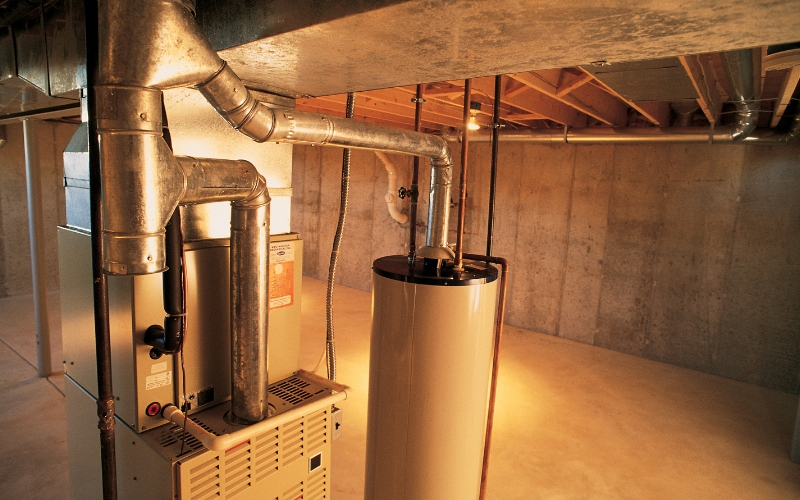10 Home Heating Systems You Need to Know
Selecting the right home heating system is a crucial factor that has to be considered in order to maintain comfortable climate in your home for the entire year. Knowledge of all the categories of heaters will equip you with knowledge to decide which one is best because they all have their own strengths and weaknesses. This is especially important if you are installing a new system in your home or maybe looking for a solution to replace the current system you have; however, it will be essential to know some differences between these types of systems to allow you choose the most appropriate one that will meet your requirements and pocket. In this brief blog post, we will explore ten types of home heating systems and give you all the info you require so that you can snuggle up and stay warm all winter.

Home Heating Systems:
1. Furnace
Furnaces are one of the most common heating systems found in homes today. They work by blowing heated air through ducts that deliver the warm air to rooms throughout the house via air registers or grills.
Fuel source: Natural gas, oil, or electricity
Advantage: Efficient and provides consistent heating
Disadvantage: Requires regular maintenance and can be noisy
2. Boiler
Boilers heat water to provide either hot water or steam for heating. The water or steam is then circulated through pipes to radiators or radiant floor systems to heat the home.
Fuel source: Natural gas, oil, or electricity
Advantage: Provides even, comfortable heat and can also supply hot water
Disadvantage: Can be more expensive to install and maintain
3. Heat Pump
Heat pumps transfer heat from one place to another, providing both heating and cooling for your home. They are highly efficient because they move heat rather than generate it.
Fuel source: Electricity
Advantage: Highly efficient and provides both heating and cooling
Disadvantage: May not be effective in very cold climates
4. In-Floor Radiant Heating
In-floor radiant heating systems use hot water tubes or electric wires embedded in the floor to provide heat. This type of heating provides even and consistent warmth throughout the space.
Fuel source: Electricity or hot water (boiler)
Advantage: Provides comfortable, even heating and is very energy efficient
Disadvantage: Can be expensive to install and repair
5. Electric Resistance Heating
Electric resistance heating involves converting electricity directly into heat using elements that warm up when an electrical current passes through them. This type of heating is often used in baseboard heaters, electric space heaters, and electric furnaces.
Fuel source: Electricity
Advantage: Simple to install and can be used as a supplemental heating source
Disadvantage: Can be expensive to operate due to high electricity costs
6. Baseboard Heater
Baseboard heaters are electric heaters installed at the baseboard level along the walls of rooms. They are controlled by thermostats and provide localized heating.
Fuel source: Electricity
Advantage: Easy to install and provides zone heating
Disadvantage: Can be expensive to run and may not provide sufficient heat for larger areas

7. Electric Space Heater
Electric space heaters are portable devices that can be used to heat a single room or small area. They are a convenient option for supplemental heating.
Fuel source: Electricity
Advantage: Portable and easy to use
Disadvantage: Can be a fire hazard if not used properly and are less efficient than other heating systems
8. Active Solar Heating
Active solar heating systems use solar collectors to absorb and store heat from the sun, which is then transferred to a liquid or air and circulated throughout the home.
Fuel source: Solar energy
Advantage: Renewable and environmentally friendly
Disadvantage: High initial cost and requires sunny conditions to be effective
9. Hybrid Heating
Hybrid heating home systems combine the energy efficiency of a heat pump system with the power of a gas furnace. Most of the time, the heat pump operates at total capacity to heat the home. Then, during extreme weather conditions, the furnace will complement the system to reach the desired temperatures.
Because both systems complement each other, there is significantly less strain on each system, which means less repairs and replacements.
Fuel source: Natural gas and electricity
Advantage: Hybrid systems offer a complete heating solution that works at extreme temperatures
Disadvantage: The heat pump system will require regular maintenance and a service check every other year
10. Gravity Air Furnace
Gravity air furnaces are an older type of heating system that relies on gravity to circulate air. Warm air rises through ducts and enters rooms through registers, while cooler air returns to the furnace to be reheated.
Fuel source: Natural gas, oil, or coal
Advantage: Simple and reliable
Disadvantage: Can be inefficient and requires a large amount of space for ducts
Energy Efficiency: Our systems are designed for optimal energy consumption.
Cost Savings: Prime Genius solutions save you money on utility bills.
Environmental Sustainability: We prioritize eco-friendly technologies to reduce your carbon footprint.
For more information or to schedule a service, contact Prime Genius Heating, Air & Appliance at (916) 800-4007. We service the greater Sacramento area.


